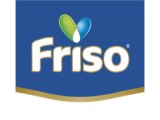
Pretend play, real growth
Pretend play is a very healthy form of play especially because it breeds creativity and develops empathy in children. Given the whole idea of creating play items from non-typical playthings e.g. a pen and ruler to form a plane, it facilitates improvisation, imagination and problem-solving skills in children, which contributes to better adaptive skills in figuring out how to survive daily challenges.
When carried out together, pretend play can forge closer bonds between siblings, parents, relatives and friends. It creates plenty of opportunities for vicarious learning where parents, other adults, older siblings can use this play opportunity in teaching new skills, knowledge in facilitating problem solving of hypothetical situations by demonstrating, correcting and showing joint curiosity.
Pretend play allows for practice of modelled behavior that reflects real life, rather a virtual model that is usually represented in tablet or mobile games. Appropriate behaviours can be modelled while inappropriate behaviours can be corrected so as to prepare children for integration into the general community. Parents can notice and assess their children’s interests, abilities, strengths and weaknesses, as well as to identify opportunities for further teaching or remediation where needed.
On the more biological and physiological side, pretend play helps in developing fine and gross motor coordination that helps the brain’s neuronal network (internal communication system) to be more familiar with bodily senses and movements in engaging and manipulating the environment. So the more the body moves, the more the brain retains information of movements to ease future learning. This improves brain conditions for further learning both physically and mentally because the building blocks of learning are increasingly put in place from experiences.
Tips for Parents
- Allow child to lead and show active curiosity about the play. Don’t worry about illogical imagination. Children will adjust their imaginations and understanding as they grow up and go through formal education. Wild imaginations are healthy in the development of creativity and problem-solving as mentioned above.
- Watch for interests, abilities and weaknesses and identify potential areas for teaching or remediation.
- Guide by showing usual consequences of actions and provide alternatives for responses to increase repertoire of behaviours.
